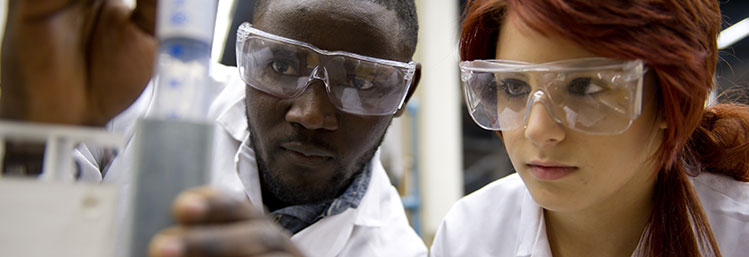
Mechanical Engineering (with Integrated Foundation Year)
BEng (Hons)
- Typical offer for 2025
- Duration
- UCAS code
- Start date
- Location
Suitable for applications.
We’ve employed several students from Bradford, who have all completed 12-month work placements. Employing students enables us to bring in new skills and future-proof the business. The students from Bradford bring fresh ideas, as well as knowledge about new technologies and processes, which they pass onto our employees. And our employees pass on their experience of working at a chemical manufacturing site.
Placement Year
Teaching, learning and assessment
In your first year you will experience a wide range of teaching and learning environments. Concepts, principles and theories are typically explored in formal lectures, practised in tutorials, and demonstrated in laboratory classes. Practical skills are developed in laboratories. Cognitive and personal skills are developed in more open-ended problem solving and design exercises, often tackled by working in small groups supported by members of academic, technical, and library staff. Project work is used to bring various aspects of the programme together.
Typically, each module will involve 72 hours of timetabled contact except Mathematics for which you will have 96 hours of timetabled contact for each module. The expected weekly timetabled commitment will be around 21 hours.
After the foundation year the teaching and learning strategy accounts for learning outcomes that need to be achieved, progression through the levels of study, and the nature of the subject. One of the goals of Higher Education is that students develop lifelong learning skills and are increasingly able to take greater responsibility for their own learning (become independent learners) as they progress through the programme. Our strategy begins with the end in mind. We want students to become great engineers; that means great problem solvers and great team-workers with an inquisitive and curious mind. This should mean that by the end of your study with us you can move seamlessly into the world of work, academic research, or become an entrepreneur.
Our assessment methods incorporate a range of different methods designed to meet the needs of industry and accrediting bodies, as well as to prepare students for a research career.

Study abroad
A study abroad year is a fantastic opportunity to broaden your horizons, build connections with people from different backgrounds and cultures, and strengthen your skills and experience to make you stand out in the job market.
We have opportunities for students to study, work or volunteer in more than 150 countries across the world and will support you every step of the way.
Study support
Our comprehensive support services will help you to achieve your full potential – both academically and personally.
We provide all you need to make the very best of your time with us, and successfully progress through your studies and on into the world of graduate employment.
Our support services include:
- Personal tutors
- Disability services
- Counselling services
- MyBradford student support centres
- The Students’ Union
- Chaplaincy and faith advisers
- An on-campus nursery
- Halls wardens
We have well-stocked libraries and excellent IT facilities across campus. These facilities are open 24 hours a day during term time, meaning you’ll always find a place to get things done on campus.
Our Academic Skills Advice Service will work with you to develop your academic, interpersonal and transferable skills.
Research
Terms and conditions of study
The University has a set of terms and conditions for all students accepting an offer to study on a course here at Bradford. This is called The Student Contract. This document sets out the Terms and Conditions which apply when you accept an offer of a place on a programme of study at the University of Bradford.
View our Student Contract for further details.
Transparency statement
Information about this programme and its modules has been published in advance of the academic year to which it applies. Every effort has been made to ensure that the information is accurate at the time of publication, but changes may occur given the interval between publishing and commencement of teaching. Any change which impacts the terms and conditions of an applicant’s offer will be communicated to them.

